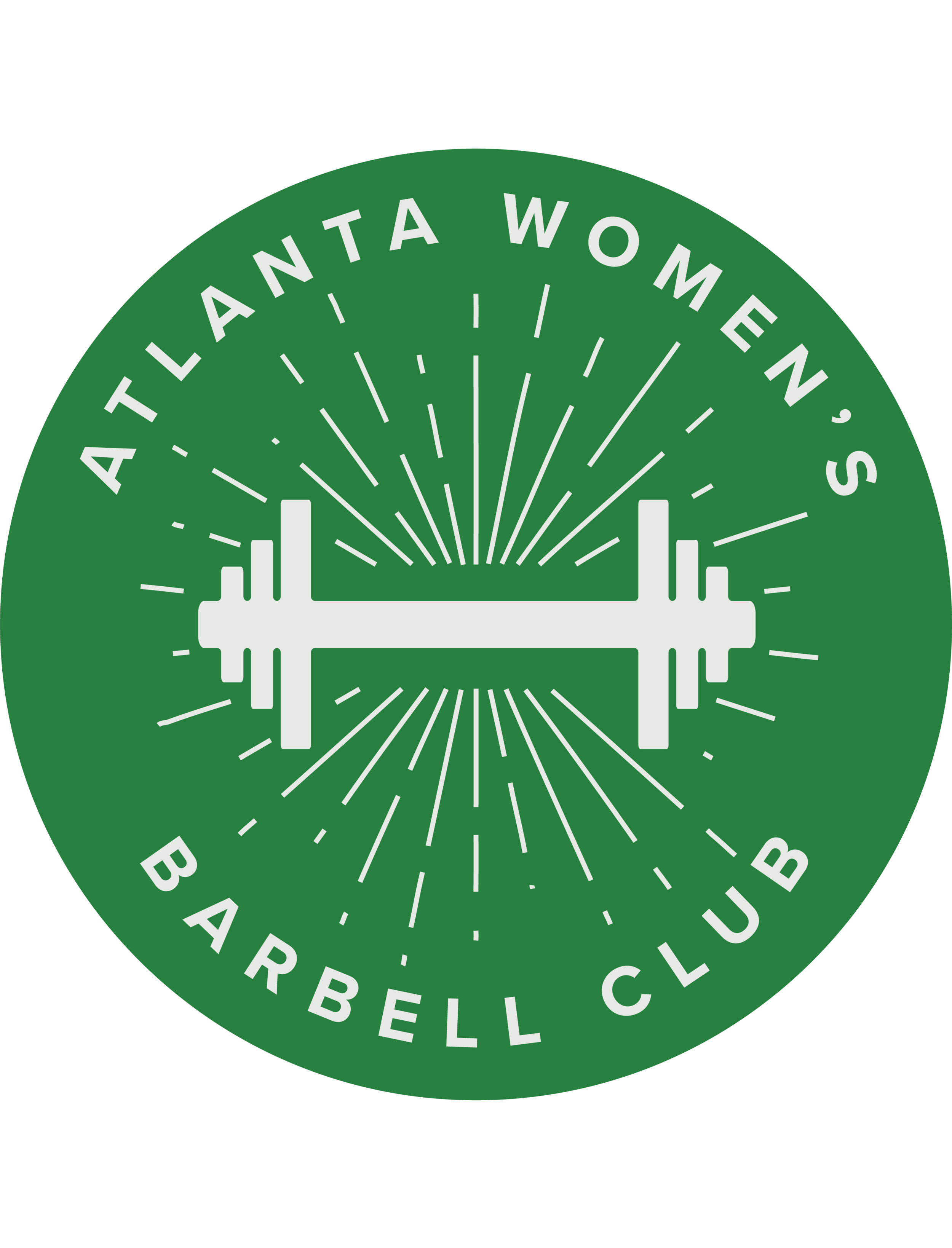The Top 3 Things Getting in the Way of Your Goals
The following is adapted from our January Instagram posts; if you don’t follow us get to it for more information like this!
The #1 Thing Getting in the Way of Your Goals?
✨PERFECTIONISM✨
That’s right! It’s not your job, or your kids, or your parents, even if those things do present real challenges. It’s you! And this is GREAT news because if you’re the problem (or your mindset, in this case), then you can do something about it! So what can we do about perfectionism with regard to setting your goals?
First: we can develop behavior based goals! Most of the goals we set are outcome-based goals, meaning they are based around a specific thing happening such as deadlifting 200 pounds or running a marathon. While outcome-based goals aren’t a bad thing, they do have limitations. These goals can identify what we want but not how to get there (or why). The biggest problem with outcome-based goals though is that we can’t always control outcomes.
What might be better in the long run are behavior-based goals, which revolve around what we can control: our behavior!
So instead of making 200 pounds the goal, we choose a behavior that is *likely* to produce the outcome we are looking for, but make it so we’ll be successful even if we don’t hit that milestone. In this case, we could set the goal to barbell train 3x’s/week which is likely to produce the strength gains we’re looking for. Even in the event we experience back pain or something else that derails the deadlift, we can still train 3x’s/week! With behavior-based goals, we’re much more likely to be successful & avoid the perfectionistic goal burnout cycle.
The #2 Thing Getting in the Way of Your Goals?
✨Setting unrealistic or self-critical goals✨
When considering the goals we want to set, it’s important that our goals are both realistic & self-compassionate. While the former may seem obvious, what even is a realistic goal?
Once you’ve broken your outcome-based goals into behavior-based goals, you need to be at least 90% sure you can meet that behavior at your prescribed frequency or the goal is not realistic! If you set the goal to meditate for 5 minutes daily to reduce stress, but you’re only 80% sure you can do it: make the goal easier! Meditate for less time, do it less frequently, or choose an easier behavior (like regular therapy) to work toward your outcome goal.
Not only are unrealistic goals less likely to produce a desired outcome, they are also not compassionate towards us. Goals that are lacking in self-compassion are even more doomed to fail because they are more likely to be perfectionistic & not considerate of where we currently are.
Self-compassionate goals:
- take our current circumstances into account (financial, mental/emotional, obligations, etc);
- acknowledge the time & energy we have to dedicate towards an goal;
- prioritize our health & well-being.
Not only is it okay to make your behavior-based goals easier, it’s a good thing! It makes your ultimate outcome more likely to be achieved than setting an unrealistic or self-critical goal.
The #3 Thing Getting in the Way of Your Goals?
✨Not planning for failure✨
We know, we know: planning for failure is… kind of a bummer. However, not planning for failure can be the reason that missing one workout turns into your belt gathering dust at the gym. Or the reason that one dinner out with friends on Friday turns into an all-you-can-eat buffet weekend.
The Goal Failure Cycle
Not planning for failure is also a quintessential part of all-or-nothing thinking. This is the cycle that reinforces thinking like “I can never follow through on my goals,” or “I’m just not a disciplined person.
This all-or-nothing thinking might look like:
- Skipping a workout altogether when we get stuck in traffic, leaving only 30 minutes for training.
- Letting one nutritional indulgence turn into a weekend of indulgences because “I’m already off plan.”
- Skipping an evening walk because you won't make your step goal anyway, despite a short walk being better than none at all.
So what do we do when life gets in the way?
The first step is to know that it’s okay to make a mistake or miss a day when working toward a goal. Missing one workout or one indulgent meal will not completely derail your progress.
The second step is to get back on track as soon as you realize a slip has occurred, or to plan the earliest you can return to the habit. So when you miss one workout, don’t miss a second. When you eat one indulgent meal, go right back to your regularly scheduled one. The key is to get back on track as soon as possible!
The last step is to reflect: is the goal realistic & self compassionate? Does the goal need to be modified? What can you do next time this situation happens?

